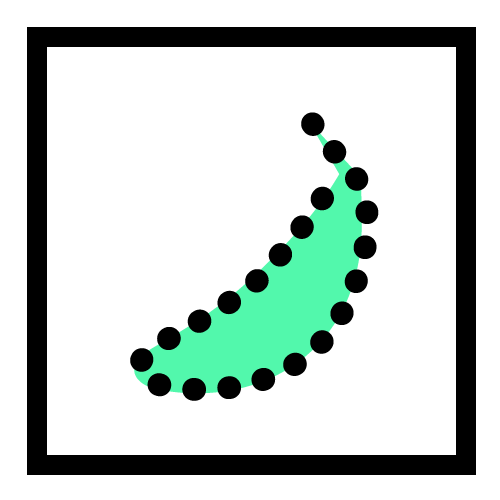Co-creative design of digital IoT services
Participatory design and idea generation for the Internet of Things
How can you democratize such an Internet of Things? The Internet of Things (IoT) is gaining importance as a technical tool and solution for a wide variety of societal challenges. These challenges include sustainability issues in smart cities that are widely recognized by decision makers and societies.
When building networked products, it’s not the hardware alone that makes for a successful product. Users are looking for “experiences” (Customer Experiences). Products must therefore be able to be integrated into complex scenarios, and while a physical component can play a key role in such a scenario, it can rarely be considered in isolation. The biggest challenge, therefore, is to design a compelling offering that anticipates how end users will use a product that not only fulfills basic functionality, but extends its value beyond that.
Only then will users accept a device not just as a tool they might have to use, but as something that makes the task at hand much easier. Participatory design encompasses theories, practices, and studies that relate to end users. These participate as equal members in processes that should lead to new or better software and hardware concepts. The active participation of users in the ideation, design and development process through participatory design or other co-design techniques is not sufficiently considered in the smart city discourse.
Achieving this will require lay participation in the design and prototype development of Internet of Things applications. Citizens* are an example of laypeople in IoT who differ from experts in that they have no knowledge of electronics, network protocols, or how to assemble and configure IoT devices. You don’t even have to be familiar with IoT concepts.
I offer a practical orientation framework and method set. Together, they co-creatively develop their IoT projects based on “real problems” for their digital transformation.
As a result, you will have an action set to understand and conceptualize the design of products and services for the smart city yourself.
Method
The Tiles Cards Toolkit is a card-based methodology that serves as a source of inspiration for new ideas and for exploring the topic of IoT by encouraging collaborative and creative thinking. It can be used as a brainstorming tool in school lessons and participatory design workshops. Tiles Cards is designed to help lay people develop ideas for societal challenges, in the context of so-called smart cities.
Target groups
- Citizens who are actively involved in shaping digitization issues
- Entrepreneurs and decision-makers who want to conceptualize new development
- Heads of department and specialist managers in municipalities, cities and communities who want to implement digitization in the field of IoT and shape it themselves,
- “Thought leaders” in political and civic organizations who demonstrate issue-based sustainability and innovation
- Designers, developers, product and project managers who are expanding their method set on IoT idea generation.
With the IoT idea workshop I offer a method to make IoT concepts understandable for laymen and experts and to develop own ideas. Addressed are citizens, designers, developers, product managers, project managers, decision makers, managing directors, heads of departments or department heads. No prior IT knowledge is required to participate.
Takeaways from the workshop
- You will learn approaches and methods of human-centered design.
- You will independently apply the method to an example and learn about design perspectives.
- You will learn creative solutions to problems in IoT.
- They pursue their own approaches to solutions and critically track services and products in the IoT sector on the market.
- They design their own citizen-centric IoT services.
Personal benefit
- Innovator
“I understand the issues of digital service design and can better interpret future trends.” - Thought Leader
“I am an idea leader for digital solution approaches in the IoT field and can justify topics well in terms of argumentation.” - Municipal thought leaders
“I develop ideas to make society or community sustainable.” - Innovative product designers
“I can further develop my products or projects in the field of IoT.” - Digital designers
“I’m designing better products and services for the Internet of Things.” - Competent citizenship
“I know how to design and evaluate services and products for myself and my community.”
Workshop procedure
Tiles Cards consists of a set of 153 cards and a workshop protocol. They provide occasions to engage in conversation, get creative, and brainstorm about concrete solutions, while a randomness helps maintain a high degree of openness. The pre-developed scenarios address issues included in the United Nations Sustainable Development Goals (SDGs) #11, “Sustainable Cities and Communities” and #12, “Responsible Consumption and Production.”
Groups are divided between 3-6 people. Each group is given specific instructions on which methods and personas they should develop.
During the workshop, combinations of services, interactions, things, user interactions, and connections will be modeled, critically discussed with ready-made critique perspectives, and presented to all participants in a 2-minute “elevator pitch” at the end.
The goal of the Tiles IoT Toolkit is to raise citizen*s awareness of IoT and smart city issues, facilitate lifelong learning, and provide a tool to develop ideas to address societal challenges in cities.
Data sheet
- Public Design of Digital Services – IoT Idea Generation Workshop
- Small group: max. 24 participants
- Duration: 1 day, 10-18 h (lunch break approx. one hour)
- Promotional materials (PDF), workshop delivery and workshop materials and supplies.






